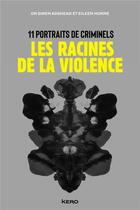-
Nombre de pages : (-)
-
Collection :
(-)
-
Genre :
(-)
-
Thème :
Non attribué
-
Prix littéraire(s) :
(-)
Résumé:
London, 1888: Jack the Ripper stalks the streets of Whitechapel; national strikes and social unrest threaten the status quo; a grave economic crisis is spreading across the Atlantic . . . Yet Her Majesty's government is preoccupied with "a mere book" - or rather, a series of books: new... Voir plus
London, 1888: Jack the Ripper stalks the streets of Whitechapel; national strikes and social unrest threaten the status quo; a grave economic crisis is spreading across the Atlantic . . . Yet Her Majesty's government is preoccupied with "a mere book" - or rather, a series of books: new translations of the Rougon-Macquart saga by French literary giant émile Zola.In his time, Zola made his British contemporaries look positively pastoral; much of his work is considered shocking and transgressive even now. But it was his English publisher who bore the brunt of the Victorians' moral outrage at Zola's "realistic" depictions of striking miners, society courtesans and priapic, feuding farmers.Seventy years before Lady Chatterley's Lover broke the back of British censorship, Henry Vizetelly's commitment to publishing Zola, and to the nascent principle of free speech, not only landed him in the dock and thereafter in prison, but brought to ruin to the publishing house he had founded. Meanwhile, Zola was going from strength to strength, establishing his reputation as a literary legend and falling in love with a woman half his age.This lively, humorous and ultimately tragic tale is an exploration of the consequences of translation and censorship which remains relevant today for readers, publishers and authors everywhere.
Donner votre avis









